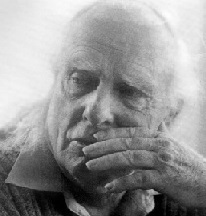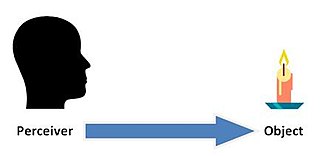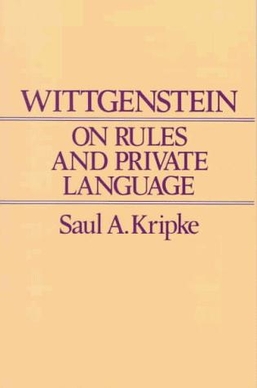Related Research Articles

Ambiguity is the type of meaning in which a phrase, statement, or resolution is not explicitly defined, making for several interpretations; others describe it as a concept or statement that has no real reference. A common aspect of ambiguity is uncertainty. It is thus an attribute of any idea or statement whose intended meaning cannot be definitively resolved, according to a rule or process with a finite number of steps.

A definition is a statement of the meaning of a term. Definitions can be classified into two large categories: intensional definitions, and extensional definitions. Another important category of definitions is the class of ostensive definitions, which convey the meaning of a term by pointing out examples. A term may have many different senses and multiple meanings, and thus require multiple definitions.

In metaphysics, ontology is the philosophical study of being. It investigates what types of entities exist, how they are grouped into categories, and how they are related to one another on the most fundamental level. Ontologists often try to determine what the categories or highest kinds are and how they form a system of categories that encompasses the classification of all entities. Commonly proposed categories include substances, properties, relations, states of affairs, and events. These categories are characterized by fundamental ontological concepts, including particularity and universality, abstractness and concreteness, or possibility and necessity. Of special interest is the concept of ontological dependence, which determines whether the entities of a category exist on the most fundamental level. Disagreements within ontology are often about whether entities belonging to a certain category exist and, if so, how they are related to other entities.
In philosophy, physicalism is the metaphysical thesis that "everything is physical", that there is "nothing over and above" the physical, or that everything supervenes on the physical. Physicalism is a form of ontological monism—a "one substance" view of the nature of reality as opposed to a "two-substance" or "many-substance" (pluralism) view. Both the definition of "physical" and the meaning of physicalism have been debated.

Philosophical Investigations is a work by the philosopher Ludwig Wittgenstein, published posthumously in 1953.

John Langshaw Austin, OBE, FBA was a British philosopher of language and leading proponent of ordinary language philosophy, best known for developing the theory of speech acts.

Herbert Paul Grice, usually publishing under the name H. P. Grice, H. Paul Grice, or Paul Grice, was a British philosopher of language who created the theory of implicature and the cooperative principle, which became foundational concepts in the linguistic field of pragmatics. His work on meaning has also influenced the philosophical study of semantics.
The posterior probability is a type of conditional probability that results from updating the prior probability with information summarized by the likelihood via an application of Bayes' rule. From an epistemological perspective, the posterior probability contains everything there is to know about an uncertain proposition, given prior knowledge and a mathematical model describing the observations available at a particular time. After the arrival of new information, the current posterior probability may serve as the prior in another round of Bayesian updating.
Nonsense is a communication, via speech, writing, or any other symbolic system, that lacks any coherent meaning. Sometimes in ordinary usage, nonsense is synonymous with absurdity or the ridiculous. Many poets, novelists and songwriters have used nonsense in their works, often creating entire works using it for reasons ranging from pure comic amusement or satire, to illustrating a point about language or reasoning. In the philosophy of language and philosophy of science, nonsense is distinguished from sense or meaningfulness, and attempts have been made to come up with a coherent and consistent method of distinguishing sense from nonsense. It is also an important field of study in cryptography regarding separating a signal from noise.
Ordinary language philosophy (OLP) is a philosophical methodology that sees traditional philosophical problems as rooted in misunderstandings philosophers develop by distorting or forgetting how words are ordinarily used to convey meaning in non-philosophical contexts. "Such 'philosophical' uses of language, on this view, create the very philosophical problems they are employed to solve."

In philosophy of perception and epistemology, naïve realism is the idea that the senses provide us with direct awareness of objects as they really are. When referred to as direct realism, naïve realism is often contrasted with indirect realism.
The identity of indiscernibles is an ontological principle that states that there cannot be separate objects or entities that have all their properties in common. That is, entities x and y are identical if every predicate possessed by x is also possessed by y and vice versa. It states that no two distinct things can be exactly alike, but this is intended as a metaphysical principle rather than one of natural science. A related principle is the indiscernibility of identicals, discussed below.
In the philosophy of language and speech acts theory, performative utterances are sentences which not only describe a given reality, but also change the social reality they are describing.

Wittgenstein on Rules and Private Language is a 1982 book by philosopher of language Saul Kripke in which he contends that the central argument of Ludwig Wittgenstein's Philosophical Investigations centers on a devastating rule-following paradox that undermines the possibility of our ever following rules in our use of language. Kripke writes that this paradox is "the most radical and original skeptical problem that philosophy has seen to date" (p. 60). He argues that Wittgenstein does not reject the argument that leads to the rule-following paradox, but accepts it and offers a "skeptical solution" to alleviate the paradox's destructive effects.

The private language argument argues that a language understandable by only a single individual is incoherent, and was introduced by Ludwig Wittgenstein in his later work, especially in the Philosophical Investigations. The argument was central to philosophical discussion in the second half of the 20th century.
Semantic holism is a theory in the philosophy of language to the effect that a certain part of language, be it a term or a complete sentence, can only be understood through its relations to a larger segment of language. There is substantial controversy, however, as to exactly what the larger segment of language in question consists of. In recent years, the debate surrounding semantic holism, which is one among the many forms of holism that are debated and discussed in contemporary philosophy, has tended to centre on the view that the "whole" in question consists of an entire language.
In the philosophy of language, the descriptivist theory of proper names is the view that the meaning or semantic content of a proper name is identical to the descriptions associated with it by speakers, while their referents are determined to be the objects that satisfy these descriptions. Bertrand Russell and Gottlob Frege have both been associated with the descriptivist theory, which is sometimes called the mediated reference theory or Frege–Russell view.
"On Denoting" is an essay by Bertrand Russell. It was published in the philosophy journal Mind in 1905. In it, Russell introduces and advocates his theory of denoting phrases, according to which definite descriptions and other "denoting phrases ... never have any meaning in themselves, but every proposition in whose verbal expression they occur has a meaning." This theory later became the basis for Russell's descriptivism with regard to proper names, and his view that proper names are "disguised" or "abbreviated" definite descriptions.
The analytic–synthetic distinction is a semantic distinction used primarily in philosophy to distinguish between propositions that are of two types: analytic propositions and synthetic propositions. Analytic propositions are true or not true solely by virtue of their meaning, whereas synthetic propositions' truth, if any, derives from how their meaning relates to the world.
Definitions of knowledge try to determine the essential features of knowledge. Closely related terms are conception of knowledge, theory of knowledge, and analysis of knowledge. Some general features of knowledge are widely accepted among philosophers, for example, that it constitutes a cognitive success or an epistemic contact with reality and that propositional knowledge involves true belief. Most definitions of knowledge in analytic philosophy focus on propositional knowledge or knowledge-that, as in knowing that Dave is at home, in contrast to knowledge-how (know-how) expressing practical competence. However, despite the intense study of knowledge in epistemology, the disagreements about its precise nature are still both numerous and deep. Some of those disagreements arise from the fact that different theorists have different goals in mind: some try to provide a practically useful definition by delineating its most salient feature or features, while others aim at a theoretically precise definition of its necessary and sufficient conditions. Further disputes are caused by methodological differences: some theorists start from abstract and general intuitions or hypotheses, others from concrete and specific cases, and still others from linguistic usage. Additional disagreements arise concerning the standards of knowledge: whether knowledge is something rare that demands very high standards, like infallibility, or whether it is something common that requires only the possession of some evidence.
References
- ↑ "WEAR THE PANTS definition | Cambridge English Dictionary".
- ↑ Sense and Sensibilia, Austin, p. 63-77
- ↑ "'Trouser - Word Piece', Keith Arnatt, 1972, printed 1989". Tate.
- ↑ Boellstorff, Tom (2016). "Theorizing the Digital Real". Current Anthropology. 57 (4): 387–407. doi:10.1086/687362. JSTOR 26545518. S2CID 147721909 – via JSTOR.
- ↑ Coval, S.; Forrest, Terry (1967). "Which Word Wears the Trousers?". Mind. 76 (301): 73–82. doi:10.1093/mind/LXXVI.301.73. JSTOR 2252028 – via JSTOR.